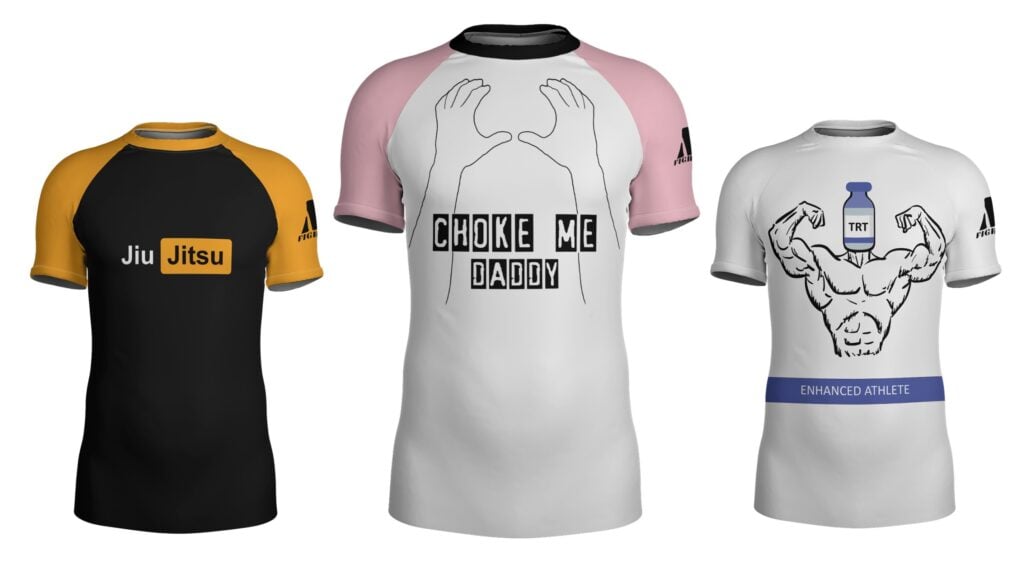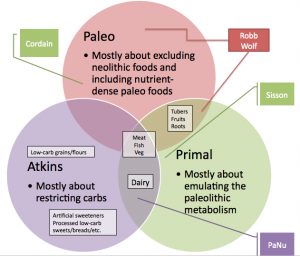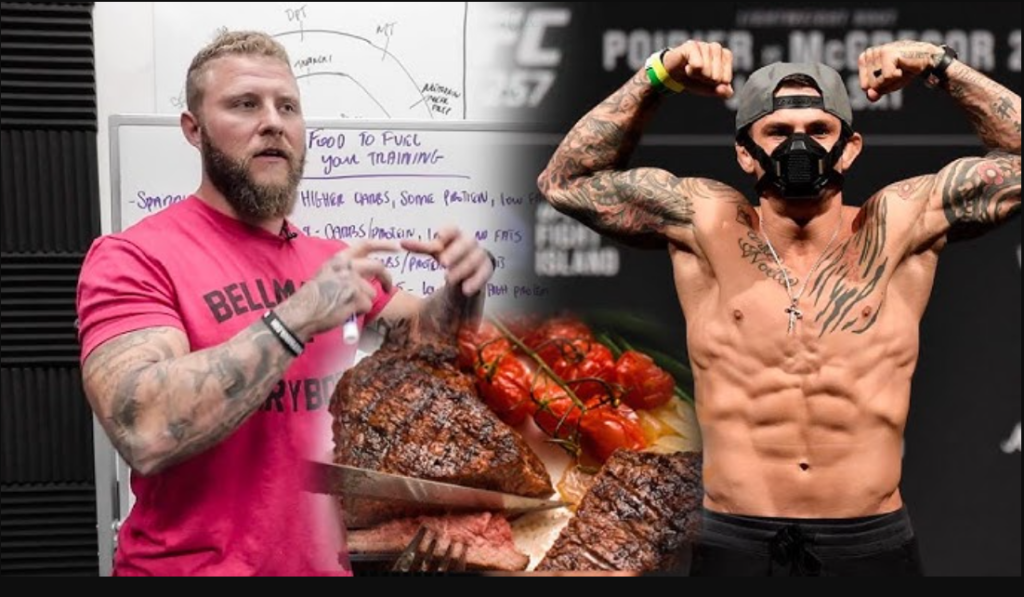
The “food is fuel” statement is commonly known among athletes, but very few seem to take it seriously. An integral part of athletic health and well-being, nutrition should not be taken lightly. Along with proper recovery and training strategies, it creates the tripod of athletic performance. If one of the tripod’s legs is bent or crooked, the stability of the whole structure is at risk. If one of the legs is missing then there’s no tripod to start with, and sitting on a two-legged one is a challenge in the best of circumstances.
The Main Problem with Nutrition for Combat Athletes
So, why do most athletes seem to ignore or completely misunderstand nutrition? Personally, I see two main reasons for it:
- People are not well informed on the subject and opt for shortcuts and/or the advice of incompetent sources;
- People are too much into nutrition and suffer from “paralysis by analysis”, not giving anyone option the required time to be effective.
Let’s explore them further to find out which one of these key issues is your stumbling block before we offer ways to deal with it and set up a perfect nutrition for grapplers.
Not Enough Knowledge
Nutrition is a complex subject that requires not only knowledge of nutrients but of the human body as well. It’s a subject that has been notoriously under-covered by modern medicine during the formal education of doctors.
As a result, there’s an avalanche of experts whose credentials nobody can verify with any authority. All of these online certified experts claim to have the best formula for weight loss or gain, depending on their target group.
When it comes to the average Joe, working out to stay alive it’s not really that bad. Unless someone has an underlying illness, in which case listening to anyone except a well-trained medical professional is a bad idea then any correct nutritional advice can be of help.
With athletes, however, it’s a whole different ball game, and nutrition often dictates the outcome of an athletic endeavor. When athletic performance is the goal, there’s no place for the “Lose 20 pounds in 3 weeks” approach, unless you’re willing to seriously endanger your health.
Nutrition has to be dialed into perfection, the older the athlete the finer the details. General nutritional guidelines have to be a way of life before an event-specific diet is even considered.
With athletes involved in combat sports, weight cuts are a regular, though unwanted, occurrence. Nutrition plans leading to an athletic event need to work up to a properly designed weight cut, put together by certified experts.
Even if the athlete has sufficient knowledge, planning nutrition takes time and patience, which should be directed toward training. So employing a real expert is the first and most important step towards building one stable leg of the tripod.
Paralysis by Analysis
If you’re one of those types whose hobby is nutrition, or maybe even a doctor or a nutrition expert, you’re in for a trap. When choosing to part take in an athletic competition, too much information can lead to another pitfall.
Let’s say you’re focused on a bodybuilder-style of diet, with all your macros and micros carefully calculated. While you’re on your plan you come across the principles of the Paleo approach. So you modify your diet habits accordingly and you’re now ready to train and prep for competition.
After only a couple of weeks, it’s time for you to try that new intermittent fasting protocol you read about while in the toilet. And the cycle continues.
Such a cycle accomplishes nothing because you’re not giving anything the time to show effects. Jumping from diet to diet is like doing berimbolos one day, then Kata Guruma the next while preparing for a competition – it is a waste of time.
The body needs time to adjust to any external stimulus. It is a complex machine of hormones that need to be kept in equilibrium and carefully manipulated towards your goals. So, choose an option that is sustainable for you and doesn’t change it for at least 6 months.
Basic Nutrition Guidelines for Competitive Grapplers
As a competitive athlete, it can be hard to juggle nutrition along with training, recovery, and everyday obligations. So, even if you can’t allow for professional nutritional help, you can go by your own common sense. Here are a few nutritional starting points that can make a world of difference:
1. Stay Hydrated
Our bodies are made of around 65 % water and muscle tissue is comprised of 79 % water! So staying hydrated should be the number one priority for a BJJ competitor. Also, don’t be fooled by all the commercial superhydration concoctions available out there.
Most of that stuff is pure sugar (see point 2) and is going to lead to health deterioration in the long run. Stick to good old water and develop a habit of drinking it. Take a 30 oz bottle with you and make sure you’ve filled it up at least three times a day. Coffee, tea, and pre/post-workout shakes do not count.
2. Ditch Sugar
This one is as hard as it is obvious. Processed sugar is in almost every product surrounding us. That low-fat yogurt you picked up in the market actually contains more sugar to replace the fat. The healthy, full-grain cereal you eat for breakfast is a sugar bomb, containing enough sugar for a whole family.
Even the bacon Paleo people so devoutly worship has been packed with preservatives that are, in essence, sugar-based. Even that zero-sugar diet drink is filled up with sugar substitutes – much worse for our health than the original culprit.
The solution is to go about carefully reading labels and stick to what is actual food (see point 3). You can’t do much damage by going for meat, eggs, veggies, fruit, and some healthy fats. And there are plenty of options for those with an insatiable sweet tooth in the form of dates or raisins.
3. Go Green
Before I get to stick to trying to turn you all into vegetarians stop. I’m not. Simply go for a salad with as many colors as possible with every meal. It’s as easy as that.
Broccoli, kale, spinach, ginger, all kinds of peppers, beets, carrots, etc should be the staple of every athlete’s diet. They contain valuable vitamins and minerals to go along with all the fiber and a surprising amount of protein. Your guts will be grateful for this one.
4. Eat as You Train
As previously mentioned, nutrition is only one-third of the whole picture. The way you train (intensity-wise) and your recovery abilities are going to determine your nutritional needs. Food is fuel for training and the main substrate to aid and speed up recovery.
It is not recommended for grapplers to shy away from carbohydrates, because of the intensity of grappling training alone. Add in strength and conditioning to the mix and going Paleo doesn’t seem like such a great idea. That’s because it isn’t.
Eat your potatoes, rice, quinoa, and whole grain stuff (bread, pasta) without worrying too much. Just stay away from the processed stuff and do not confuse carbohydrates with sugar. Donuts are not athletic-friendly carbs. Baked sweet potatoes are.
5. A Word on Supplements
A subject that can be discussed in at least a series of articles, let’s just stick to the basics here. The reason why there is such a well-developed supplement industry is just that – it’s an industry. And industries are aimed at profit.
Next time you’re in your favorite supplement store pay attention to the marketing. You’ll notice that every product claims to build muscle, burn fat, and give energy, regardless of type. If that was all true then only one supplement would’ve done the trick, wouldn’t it?
Without diving into this too deeply, again go for the basics. Whey protein, preferably isolates, creatine, fish oil, multivitamins, and the optional box of BCAAs. Everything else is as useless as sugar and should follow it into nutrition purgatory.
Nutrition for combat sports athletes is not that hard. And not just competitive athletes, everyone with a little common sense should adhere to the basics. The advice laid out above will allow everyone to build good habits in a sustainable and easy manner. As much dedication as it takes, in the beginning, it’s become effortless if you only stick with it. Much like with BJJ.
Final Thoughts
Nutrition has one main task for grapplers – fuel performance. What you want out of your food, apart from some flavor (forget about boiled chicken breast) is to give you the energy to do your thing on the mats and in the weight room, and the building blocks to help you recover.
You also want to be able to easily stay on weight, so weight cuts end up being a breeze when fight week comes. All ti takes is understanding the key issues and the main components of a solid nutrition for grapplers plan. Bon Appetit!

Grappling Nutrition: Improve Gut Health To Improve BJJ Performance
You Might Also Be Interested In:
Top 5 Best BJJ Supplements For High-Level BJJ Performance
How To Be Completely Ready For A Jiu-Jitsu Competition
Paleo Diet for BJJ Lifestyle
REVIEW: George Lockhart Nutrition & Weight Management System DVD/Book


![Darce Choke Encyclopedia – Origins, Mechanics and Variations [2025] BJJ, choke, Brabo, BJJ Darce Choke, D'arce Choke, Darce BJJ Choke](https://bjj-world.com/wp-content/uploads/2017/11/JungPoirierLeeYahoo-218x150.jpg)












![Countering with Crab Ride Anthony Budion DVD Review [2025] Countering with Crab Ride Anthony Budion DVD Review](https://bjj-world.com/wp-content/uploads/2025/03/countering-with-crab-ride-anthony-budion-dvd-review-218x150.png)
![Closet Closed Guard Craig Jones DVD Review [2025] Closet Closed Guard Craig Jones DVD Review](https://bjj-world.com/wp-content/uploads/2025/03/closet-closed-guard-craig-jones-dvd-review-218x150.png)
![Xanadu Back Takes Levi Jones-Leary DVD Review [2025] Xanadu Back Takes Levi Jones-Leary DVD Review](https://bjj-world.com/wp-content/uploads/2025/03/xanadu-back-takes-levi-jones-leary-dvd-review-218x150.png)

![No-Gi Grapplers Guide To Front Headlock Joel Bane DVD Review [2025] No-Gi Grapplers Guide To Front Headlock Joel Bane DVD Review](https://bjj-world.com/wp-content/uploads/2025/03/no-gi-front-headlock-joel-bane-dvd-review-218x150.png)


![Roger Gracie Closed Guard System DVD Review [2025] Roger Gracie Closed Guard System DVD Review](https://bjj-world.com/wp-content/uploads/2025/01/roger-gracie-closed-guard-system-dvd-review-100x70.png)
![The Buchecha Gi Takedown System DVD Review [2025] The Buchecha Gi Takedown System DVD Review](https://bjj-world.com/wp-content/uploads/2025/01/buchecha-gi-takedown-system-dvd-review-100x70.png)

![Charles Allan Price Building Workouts For BJJ DVD Review [2024] Charles Allan Price Building Workouts For BJJ DVD Review](https://bjj-world.com/wp-content/uploads/2024/09/charles-allan-price-building-workouts-for-bjj-review-100x70.png)
![Understanding The Distance On Top Gui Mendes DVD Review [2024] Understanding The Distance On Top Gui Mendes DVD Review](https://bjj-world.com/wp-content/uploads/2024/10/distance-on-top-gui-mendes-dvd-review-100x70.png)

![Crossing and Spinning Steps To Attack Israel Hernandez DVD Review [2024] Crossing and Spinning Steps To Attack Israel Hernandez DVD Review](https://bjj-world.com/wp-content/uploads/2024/09/spinning-steps-to-attack-israel-hernandez-dvd-review-100x70.png)
![Jett Thompson Master Ankle and Aoki Lock DVD Review [2024] Jett Thompson Master Ankle and Aoki Lock DVD Review](https://bjj-world.com/wp-content/uploads/2024/09/jett-thompson-master-ankle-and-aoki-lock-dvd-review-100x70.png)
![Systematically Attacking The Crucifix Gordon Ryan DVD Review [2024] Systematically Attacking The Crucifix Gordon Ryan DVD Review](https://bjj-world.com/wp-content/uploads/2024/10/systematically-attacking-the-crucifix-gordon-ryan-dvd-review-100x70.png)


![Grappling Takedown Dominance Brandon Ruiz DVD Review [2025] Grappling Takedown Dominance Brandon Ruiz DVD Review](https://bjj-world.com/wp-content/uploads/2025/01/grappling-takedown-dominance-brandon-ruiz-dvd-review-100x70.png)
![The Whole Omoplata Enchilada Lyanne Perez DVD Review [2024] The Whole Omoplata Enchilada Lyanne Perez DVD Review](https://bjj-world.com/wp-content/uploads/2024/11/whole-omoplata-enchilada-lyanne-perez-dvd-review-100x70.png)
![Higher Tripod Passing Craig Jones DVD Review [2025] Higher Tripod Passing Craig Jones DVD Review](https://bjj-world.com/wp-content/uploads/2025/02/higher-tripod-passing-craig-jones-dvd-review-100x70.png)

![Advanced Immortal Clinch Matt Brown DVD Review [2024] Advanced Immortal Clinch Matt Brown DVD Review](https://bjj-world.com/wp-content/uploads/2024/09/advanced-immortal-clinch-matt-brown-dvd-review-100x70.png)



![Back Hacks Yigit Haney BJJ DVD Review [2025] Back Hacks Yigit Haney BJJ DVD Review](https://bjj-world.com/wp-content/uploads/2024/12/back-hacks-yigit-haney-bjj-dvd-review-100x70.png)


![Back Control and Submission Felipe Pena DVD Reveiw [2025] Back Control and Submission Felipe Pena DVD Reveiw](https://bjj-world.com/wp-content/uploads/2025/01/back-control-and-submission-felipe-pena-dvd-reveiw-100x70.png)


![Miko Hytonen Lapel Chokes From Everywhere DVD Review [2024] Miko Hytonen Lapel Chokes From Everywhere DVD Review](https://bjj-world.com/wp-content/uploads/2024/10/miko-hytonen-lapel-chokes-from-everywhere-dvd-review-100x70.png)
![Master Scissor Sweep Ryan Scialoia DVD Review [2025] Master Scissor Sweep Ryan Scialoia DVD Review](https://bjj-world.com/wp-content/uploads/2024/12/scissor-sweep-ryan-scialoia-dvd-review-100x70.png)
![Two Sides One Game Sweep and Pass Marcos Tinoco DVD Review [2024] Two Sides One Game Sweep and Pass Marcos Tinoco DVD Review](https://bjj-world.com/wp-content/uploads/2024/11/sweep-and-pass-marcos-tinoco-dvd-review-100x70.png)